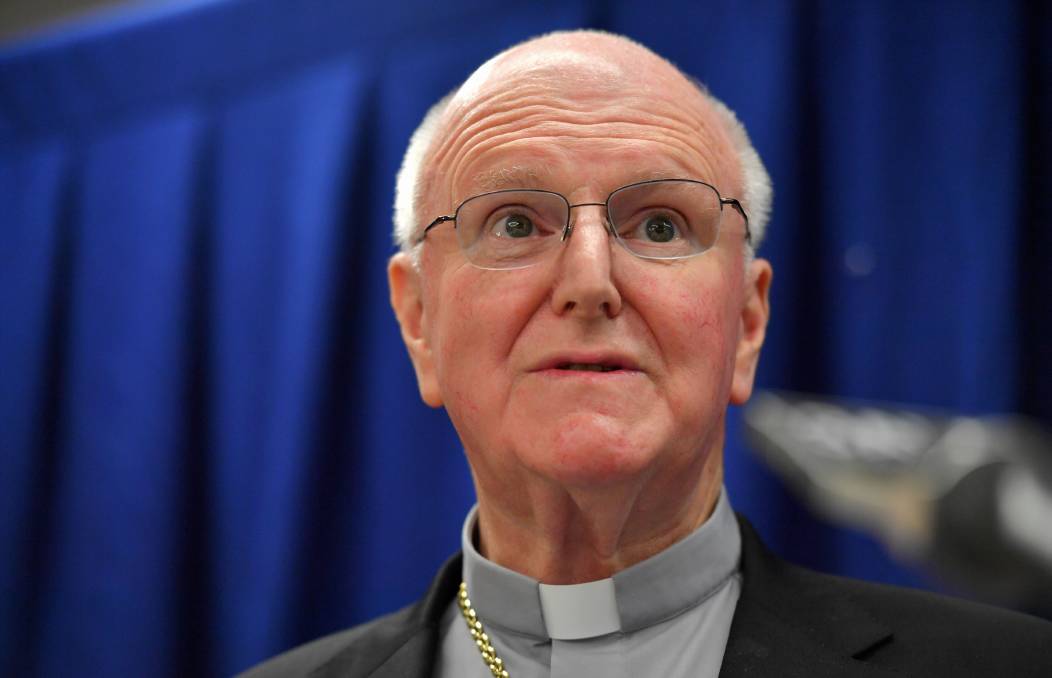Reformers Urge Australian Bishops to Release Report on Child Sexual Abuse Royal Commission
By Joanne McCarthy
AUSTRALIAN Catholic bishops face “make or break time”, say prominent Catholics urging the church to make public its first formal analysis of damning child sexual abuse royal commission findings. Reform group Catholics for Renewal and prominent Catholic author Paul Collins say public release of the Truth Justice and Healing Council’s royal commission assessment report, delivered to bishops last week, is a test of whether Australia’s bishops have learnt the lessons of the royal commission and are prepared to include lay Catholics in decision-making. Former priest and Catholics for Renewal president Dr Peter Wilkinson and vice president Peter Johnstone said their group had asked bishops and leaders of Catholic orders to regard the TJH Council analysis of royal commission recommendations as a church “white paper” for reform. They called on bishops to release the report to Catholics and the broader community for comment and consider those responses before preparing the church’s formal response to royal commission recommendations to the Federal Government. “Not to make that document available is just another sign of continuing secrecy by the bishops,” said Dr Wilkinson, who co-authored a five-year study into systemic reasons for child sexual abuse within the Catholic Church. Not to make that document available is just another sign of continuing secrecy by the bishops. Former Catholic priest Dr Peter Wilkinson But in a sign of increasing division between church leaders and lay Catholics, Melbourne Archbishop and Australian Catholic Bishops Conference president Denis Hart on Thursday said the TJH Council analysis paper would be discussed by Australia’s bishops when they hold their next twice-yearly conference in May. “I do not intend to pre-empt that event or comment on other ideas until the bishops have had the opportunity to meet and discuss the matter,” Archbishop Hart said. In December he said devastating revelations at the Royal Commission into Institutional Responses to Child Sexual Abuse about Catholic child sex offenders and the system that supported them “hasn’t damaged the credibility of the church”. Catholic reformers said another test for bishops is how they respond to a key royal commission recommendation for a national review of the Australian church’s governance and management, to focus on transparency, accountability, consultation and the involvement of lay men and women. A review must not be headed by clerics and must not be deferred for consideration until an Australian plenary council process from 2020, Dr Wilkinson, Mr Johnstone and Mr Collins said. “The review is huge. This is where it’s make or break time,” Dr Wilkinson said. “Whoever does the review, it cannot be a bishop because there is no trust and no confidence there after the royal commission. It has to be a lay-led review.” I do not intend to pre-empt that event or comment on other ideas until the bishops have had the opportunity to meet and discuss the matter. Melbourne Archbishop Denis Hart Mr Johnstone said Truth Justice and Healing council chief executive Francis Sullivan and former chair Elizabeth Proust would be respected candidates to lead a review because “so far the Australian Catholic Bishops Conference has shown little leadership in dealing with these issues and the real leadership has come from the TJHC”. “In my view Francis Sullivan has shown himself to be a courageous and insightful lay leader within the church who’s made himself quite unpopular with the bishops, but would be an excellent person to head that review,” Mr Johnstone said. Australian Institute of Company Directors chief executive Elizabeth Proust had also shown her willingness to confront the church’s problems, he said. In 2017 Ms Proust said she did not see “any sign that the lessons have been truly learned to the point where the institution of the church is being questioned by those who’ve got the ability to change it”. Mr Sullivan declined to comment. Ms Proust said she had “no interest and no time to pursue” a review of the church. The Truth Justice and Healing Council, appointed by the Australian Catholic Bishops Conference and leaders of Australian religious orders in 2012 to coordinate the church’s response to the royal commission, will close by the end of March. In a new paper, God and Caesar, former Catholic priest and author Paul Collins said Australian Catholicism was facing the most profound crisis in its 230-year history. But government reliance on the church to provide a significant proportion of Australia’s social welfare, health, aged care and education services meant the church’s crisis was a serious concern for all Australians, he said. “Australian Catholicism is a hollowed-out institution with declining membership, mediocre leadership and a 17th Century governance structure that is hopelessly inadequate in pluralist societies,” Mr Collins said. “Yet this very shaky institution is the foundation for a vast ministerial enterprise in education, health, aged care and social welfare that is largely funded by government.” Mr Collins said 2016 figures showed only 8-10 per cent of Catholics attended regular Mass, with “overseas-born Catholics saving Mass attendance figures from collapse”. One third of regular attendees were over 70, only 9 per cent of 15-29 year olds were regular attendees, and the church would experience an acute shortage of priests after 2022 because of the retirement or death of a large group of priests. Mr Collins said Australian bishops were failing to respond to clear signs by Pope Francis who is “trying to shift Catholicism in a more pastorally-responsive direction”. Dr Wilkinson said Pope Francis had made it clear he supported the concept of subsidiarity – where a central authority like the Vatican has a subsidiary function – and a more inclusive church with local decision-making rather than “what so often happens now, which is that the first port of call for bishops is Rome”. “If Australia’s bishops can’t understand what’s going on then we’re going nowhere,” Dr Wilkinson said.
|
.
Any original material on these pages is copyright © BishopAccountability.org 2004. Reproduce freely with attribution.
